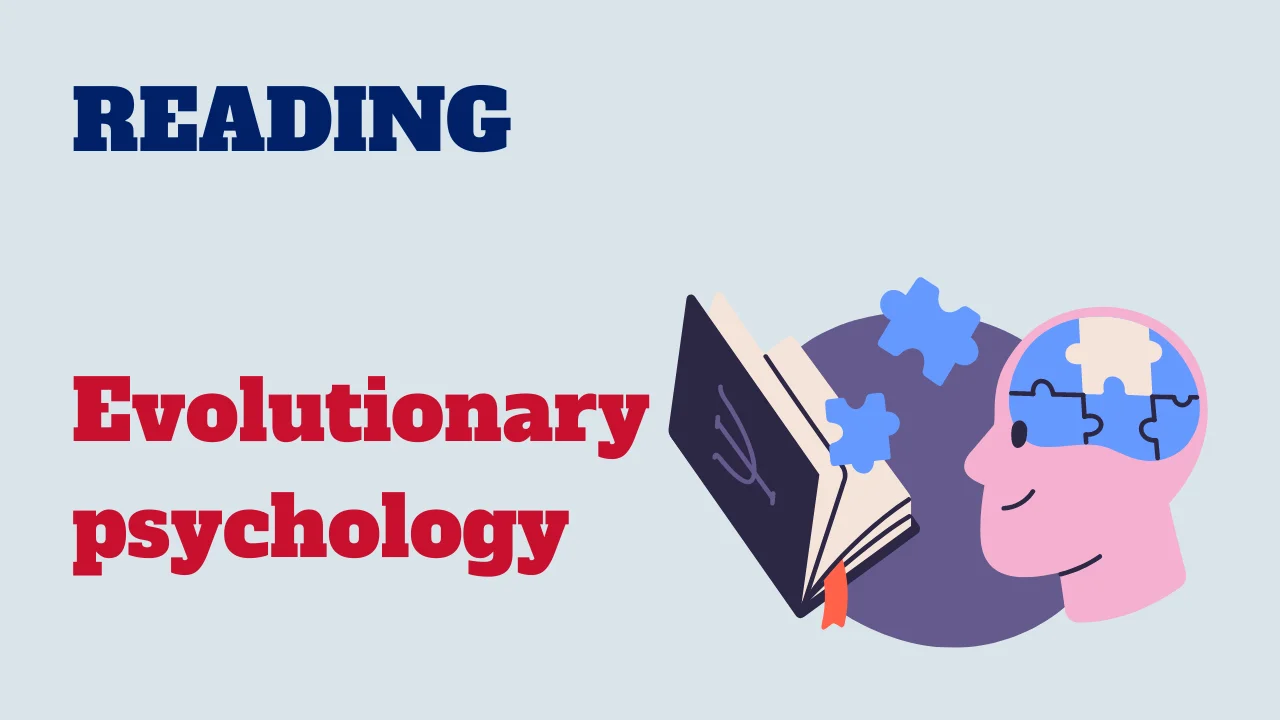The following reading text discusses evolutionary psychology, a theoretical approach in psychology that examines human cognition and behavior through the lens of evolution. It explores how psychological traits and mechanisms have evolved to solve adaptive problems in ancestral environments, leading to the emergence of universal behaviors and traits across cultures.

Additionally, the text highlights the applications of evolutionary psychology in various fields and discusses criticisms and debates within the discipline.
Text: Evolutionary psychology
Evolutionary psychology is a theoretical approach to understanding human behavior and cognition through the lens of evolution. It posits that many psychological traits, including emotions, thought processes, and behavioral patterns, have evolved to solve problems faced by our ancestors, contributing to their survival and reproductive success.
The roots of evolutionary psychology can be traced to Charles Darwin’s theory of natural selection, which explains how traits that enhance an organism’s fitness are more likely to be passed on to subsequent generations. In the 20th century, researchers like Konrad Lorenz and John Bowlby applied evolutionary principles to understand animal behavior and human attachment, respectively. However, it was not until the late 1980s and 1990s that evolutionary psychology emerged as a distinct field, largely due to the work of scholars such as Leda Cosmides and John Tooby.
One central concept in evolutionary psychology is the “environment of evolutionary adaptedness” (EEA). This refers to the Pleistocene epoch, when humans were primarily hunter-gatherers. Evolutionary psychologists argue that many of our psychological mechanisms are adaptations to the challenges faced during this period. For example, fear of snakes or spiders may be rooted in the survival threats these creatures posed to our ancestors.
Mate selection is a key area of study in evolutionary psychology. Researchers have found that certain preferences, such as men valuing youth and physical attractiveness in partners and women prioritizing resources and status, can be understood through reproductive strategies that enhanced ancestral survival. These preferences are thought to be adaptive responses to historical environmental pressures.
Critics of evolutionary psychology argue that it can be overly deterministic, neglecting the role of culture and individual variability. Additionally, the field often relies on hypothetical scenarios about ancient environments that are difficult to verify empirically.
Despite these criticisms, evolutionary psychology has provided valuable insights into a wide range of human behaviors, from social bonding and aggression to language development and mental health. By examining the evolutionary roots of our psychological traits, this field offers a deeper understanding of why we think, feel, and act the way we do, highlighting the interplay between our biological heritage and contemporary experiences.
Comprehension questions
Evolutionary psychology offers a compelling framework for understanding human cognition and behavior through the lens of evolution. By investigating the adaptive functions of psychological traits and mechanisms, evolutionary psychologists aim to uncover universal patterns of human behavior and inform diverse fields of study. Despite facing criticism and debate, evolutionary psychology continues to evolve, striving to integrate interdisciplinary perspectives and contribute to our understanding of human nature.



